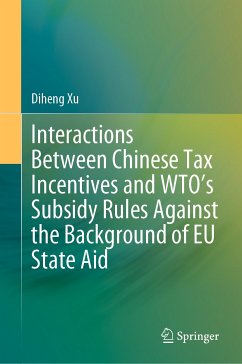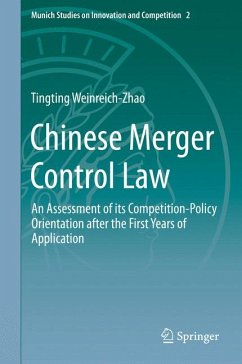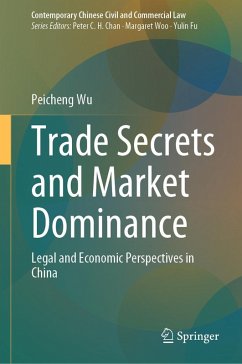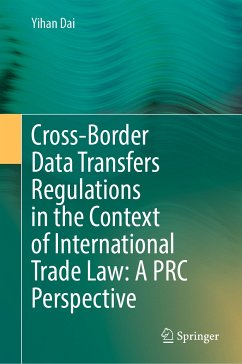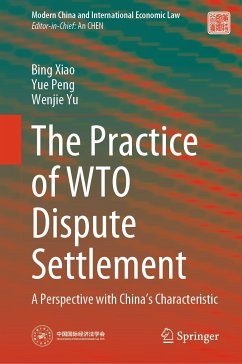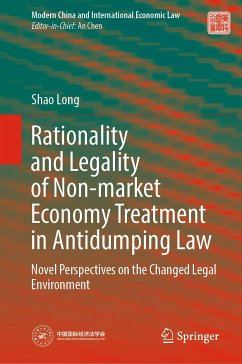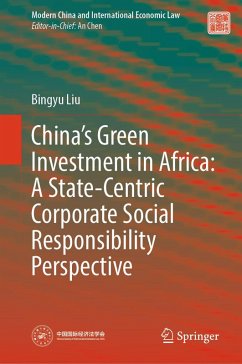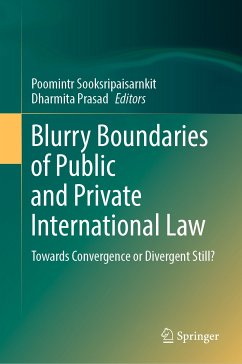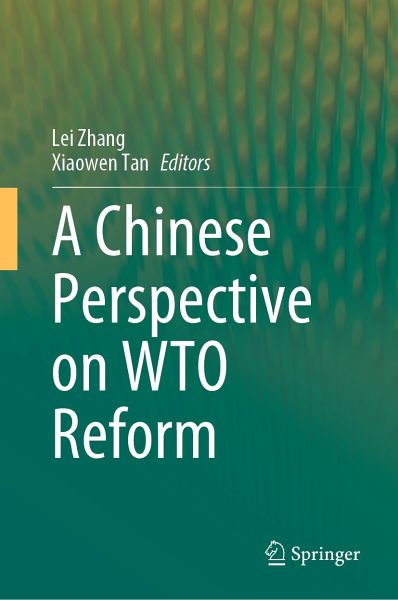
A Chinese Perspective on WTO Reform (eBook, PDF)
Versandkostenfrei!
Sofort per Download lieferbar
128,95 €
inkl. MwSt.
Weitere Ausgaben:

PAYBACK Punkte
64 °P sammeln!
This book discusses the most recent developments in the WTO regime. Issues such as E-commerce, security exception clause, China's compliance with the WTO obligations, sustainability development, IP protection in FTZs, trade controls and etc., are at the forefront of WTO studies. These issues strongly influence people's understanding of the current role of WTO and provides possible way to revitalize the function of WTO. Meanwhile, as the world's second largest economy, the world's largest trading nation and the holder of the world's largest foreign exchange reserves, China is apparently a power...
This book discusses the most recent developments in the WTO regime. Issues such as E-commerce, security exception clause, China's compliance with the WTO obligations, sustainability development, IP protection in FTZs, trade controls and etc., are at the forefront of WTO studies. These issues strongly influence people's understanding of the current role of WTO and provides possible way to revitalize the function of WTO. Meanwhile, as the world's second largest economy, the world's largest trading nation and the holder of the world's largest foreign exchange reserves, China is apparently a powerful figure in leading these issues. Therefore, this book explores extensively these issues from a Chinese perspective to see what China could do to reboost the world trade.
Dieser Download kann aus rechtlichen Gründen nur mit Rechnungsadresse in A, B, BG, CY, CZ, D, DK, EW, E, FIN, F, GR, HR, H, IRL, I, LT, L, LR, M, NL, PL, P, R, S, SLO, SK ausgeliefert werden.
Alle Preise in Euro und inkl. der gesetzl. MwSt. | Innerhalb Deutschlands liefern wir preisgebundene Bücher versandkostenfrei. Weitere Informationen: bitte hier klicken
Support
Bitte wähle dein Anliegen aus:
Rechnungen
Bestellstatus
Retourenschein
Storno



